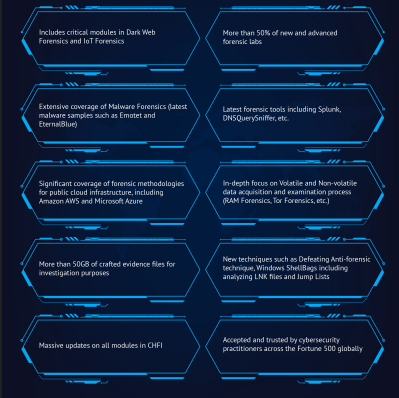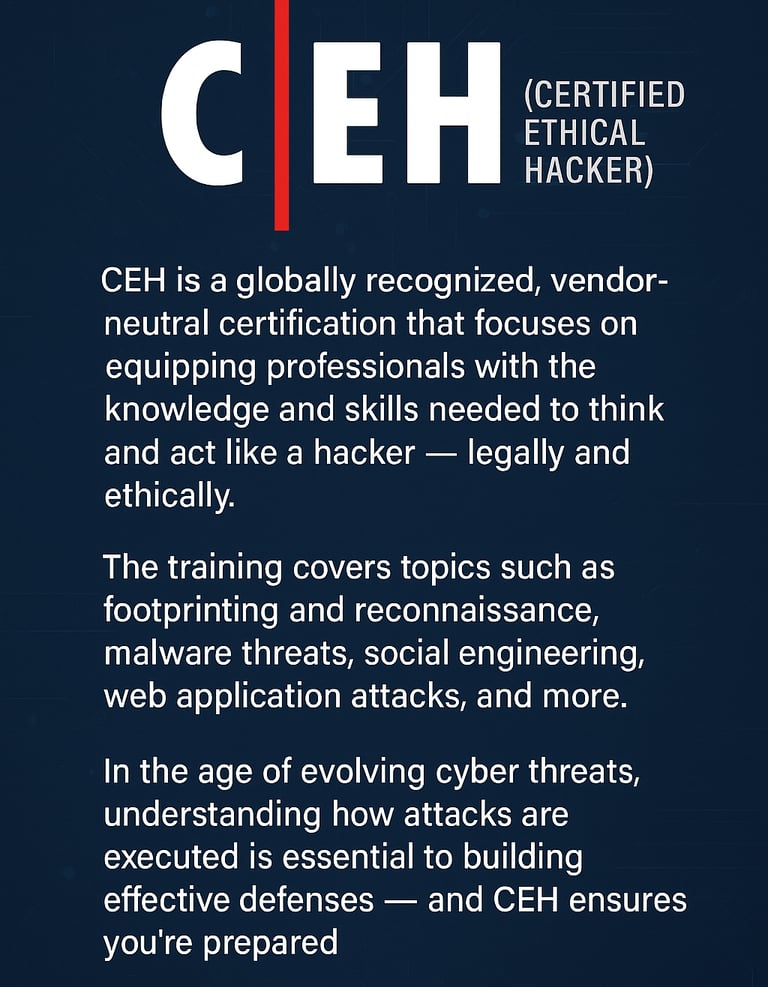
Cipher Sentinel Training
Dive deep into digital forensics
Incident Response
At Cipher Sentinel, we offer specialized training programs in Digital Forensics and Incident Response (DFIR) designed for law enforcement, cybersecurity professionals, and forensic analysts. Our hands-on courses cover real-world investigation techniques, forensic imaging, memory analysis, malware investigation, and incident response workflows.
Whether you're a beginner or a seasoned investigator, our training equips you with the skills, tools, and confidence to handle complex cyber incidents with precision.
Computer Hacking Forensic Investigator v11 (CHFI)
CHFI is a Vendor-Neutral Training in Digital Forensics. It provides its attendees with a firm grasp of Digital Forensics, presenting a detailed and methodological approach to digital forensics and evidence analysis that also pivots around different topics in the field, such as Phases of Investigations, Chain of Custody, Data Acquisition & Duplication, Operating System forensics, Network & Malware forensics, Dark-web forensics, Cloud & Database forensics, Mobile forensics, IoT forensics. This certification also focuses on explaining all vital components to perform security audits ensuring prevention from such attacks in the future. In today’s era of cyber-crime, everyone should have knowledge that how to handle such incidences and overcome them.
Who all can be benefited by CHFI Certification -
Forensics/ IT/ CSE Students
Digital Forensic Examiner
Computer Crime Investigator
Computer Forensic Analyst
Network Forensic Examiner
Computer Network Defense (CND) Forensic Analyst
Forensic Analyst and technician


Certified Ethical Hacker
(CEH)
CEH (Certified Ethical Hacker) is a globally recognized, vendor-neutral certification that focuses on equipping professionals with the knowledge and skills needed to think and act like a hacker — legally and ethically. This training provides an in-depth understanding of ethical hacking phases, attack vectors, and preventative countermeasures. Participants gain hands-on experience with the tools and techniques used by cyber attackers to exploit systems, enabling them to better defend against potential threats.
The CEH curriculum covers key topics such as footprinting and reconnaissance, scanning networks, system hacking, malware threats, social engineering, web application attacks, wireless network security, cryptography, and cloud computing. It also includes updated modules addressing the latest developments in AI and IoT security


Products
Expert cybersecurity and forensics for your business.
Resources
© 2025. All rights reserved.
Note : Most of the Products and Services offered by us are meant for Government, Defence and Law Enforcement Organisations and are required to be used in Ethical manner for National Interest. Usage of Products should be as per the Local Government Regulation/ Norms.